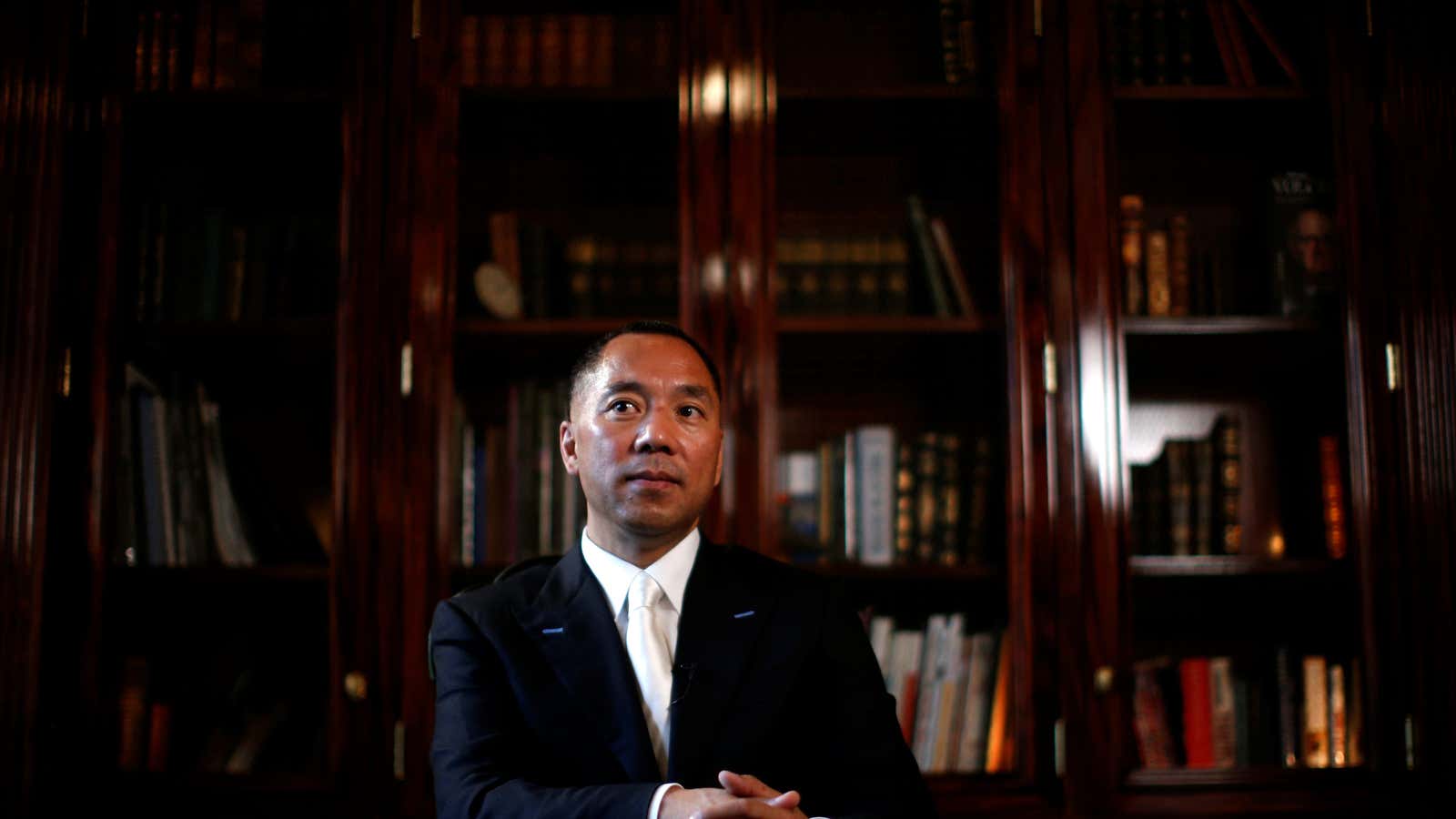Facebook, Twitter, and Google were grilled this morning about their efforts to combat propaganda in the run up the 2016 US election by the Senate’s intelligence committee. Most of the questions focused, naturally, on Russia’s influence, because the Kremlin was specifically identified by US intelligence as trying to sway the vote.
Florida senator Marco Rubio, who takes a particular interest in Beijing’s attempts to curtail Chinese citizens’ free speech, focused for a moment on dissident Guo Wengui. Facebook said Oct. 1 it had taken down a page associated with Guo and stopped him from posting to his own account after he had posted someone else’s “personal identifier information.”
Did Facebook do so at the behest of Beijing, Rubio asked the company’s attorney Colin Stretch. Kind of, Stretch admitted.
“We did receive a report from a representative of the Chinese government about that account,” Stretch said. “We analyzed that report as we would any other, and took action based on our policies,” he said.
The Chinese government has been trying to silence Guo, and to bring him back from the US to China, because he has been using social media to disseminate claims that elite government officials are corrupt. The wealthy businessman lives in a Manhattan penthouse surround by bodyguards.
Guo’s account was blocked because he published information about Wang Qishan, a member of the elite Politburo in charge of Beijing’s anti-corruption push, and Fan Bingbing, a movie star on his Facebook page, people briefed on his case say. He has alleged that Wang’s family amassed a fortune from dealings with Chinese conglomerate HNA, and that Fan was his mistress.
The company’s Community Standards only specify it will take action for “credible threats to public figures and hate speech directed at them.” A Facebook spokesman said when his account was blocked that “we don’t allow people to publish the personal information of others without their consent” and the company had no update today after the hearing.
Although Facebook is officially blocked in China, the Chinese government has a robust presence on the platform, mostly through state-owned media accounts, which claim to have tens of millions of Facebook fans. The Chinese government employs a veritable army of paid social media users to spread its message on Chinese networks that are jokingly called the “50 Cent party”.
There’s some evidence that the 50 Cent party is also colonizing foreign social media. Searching for Guo’s name on Twitter turns up a string of poorly-worded tweets disparaging him.
